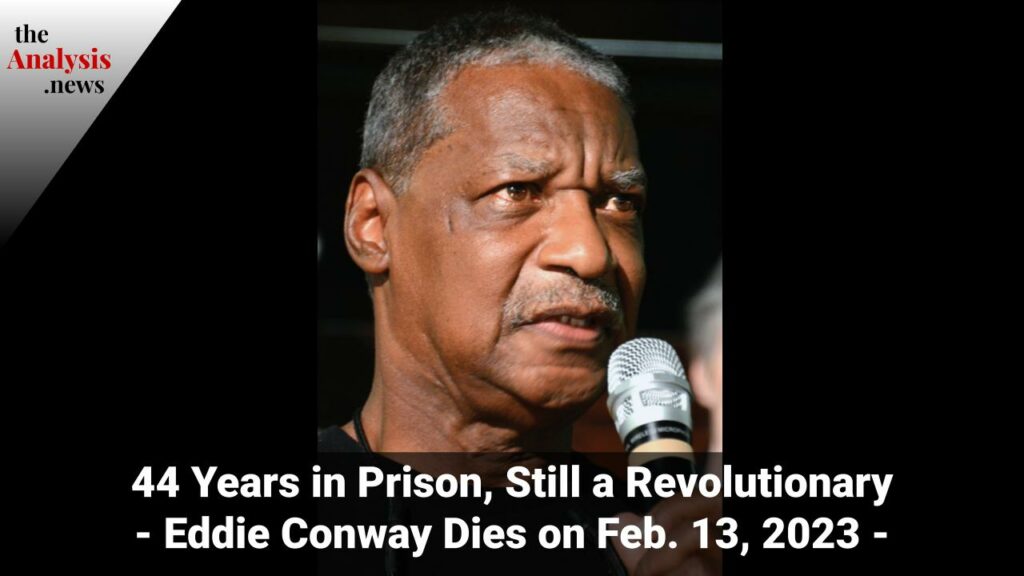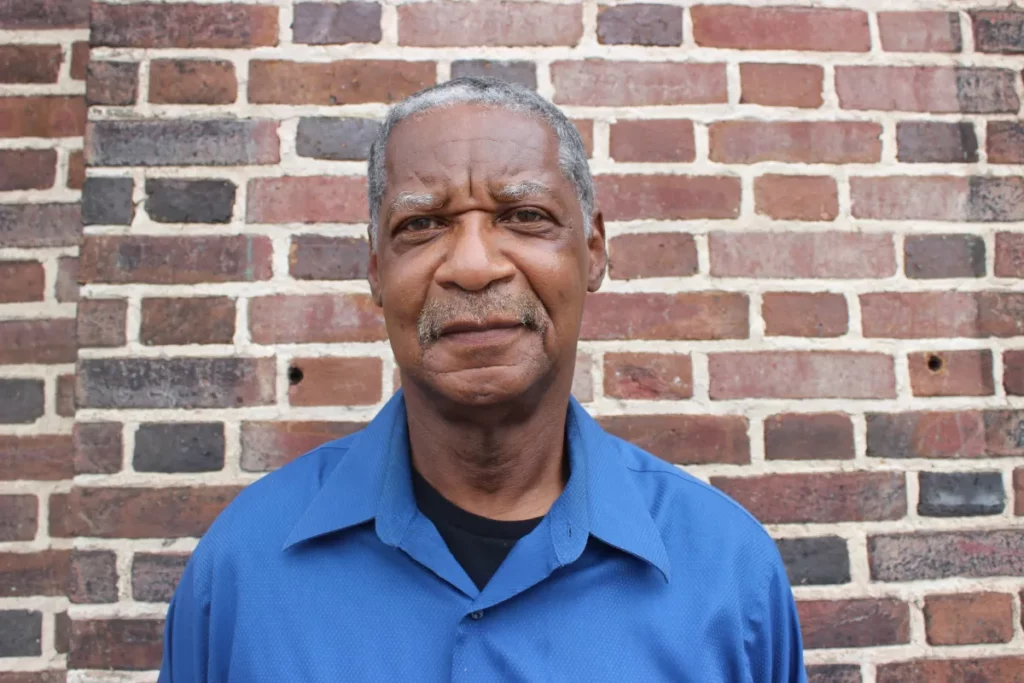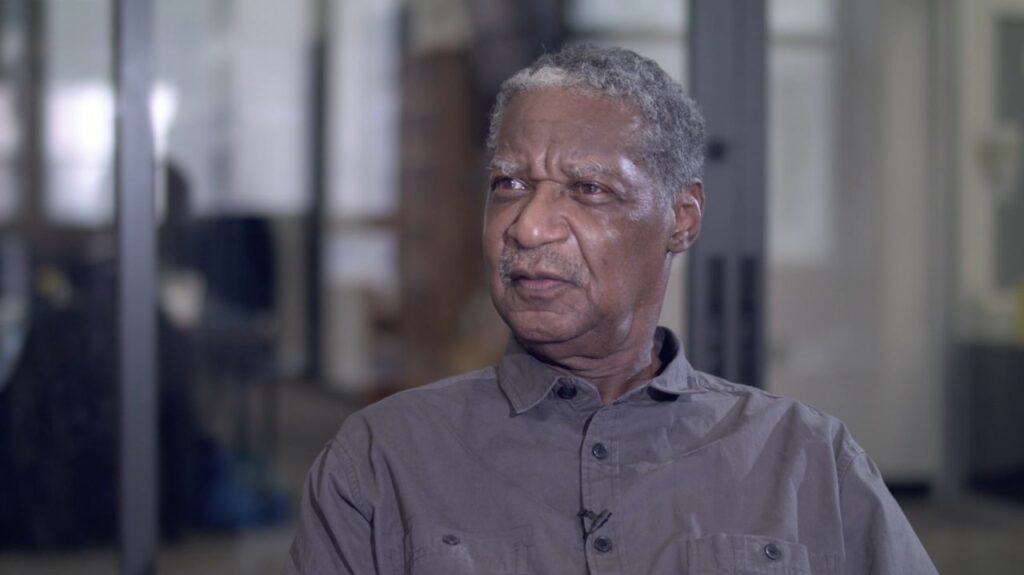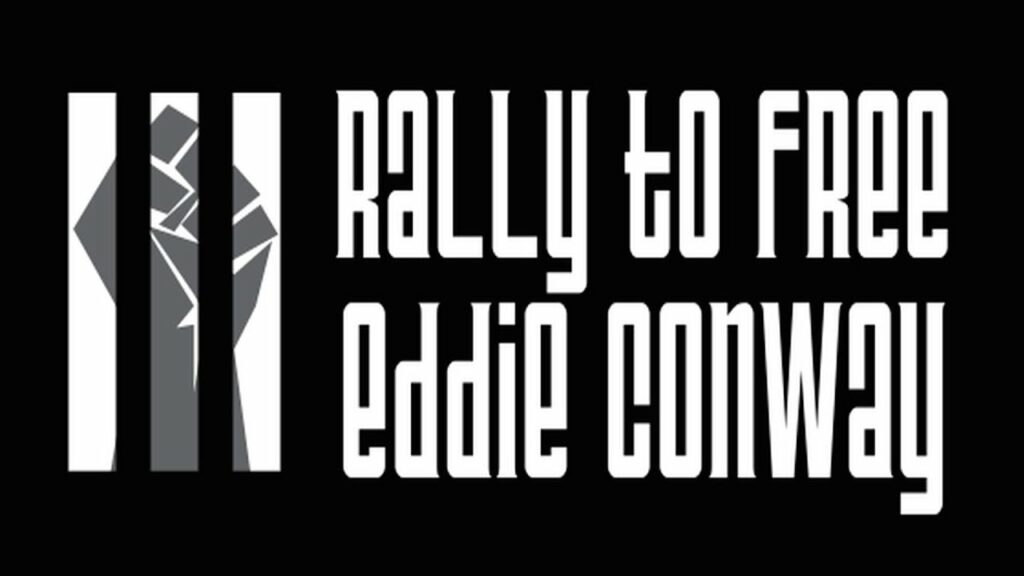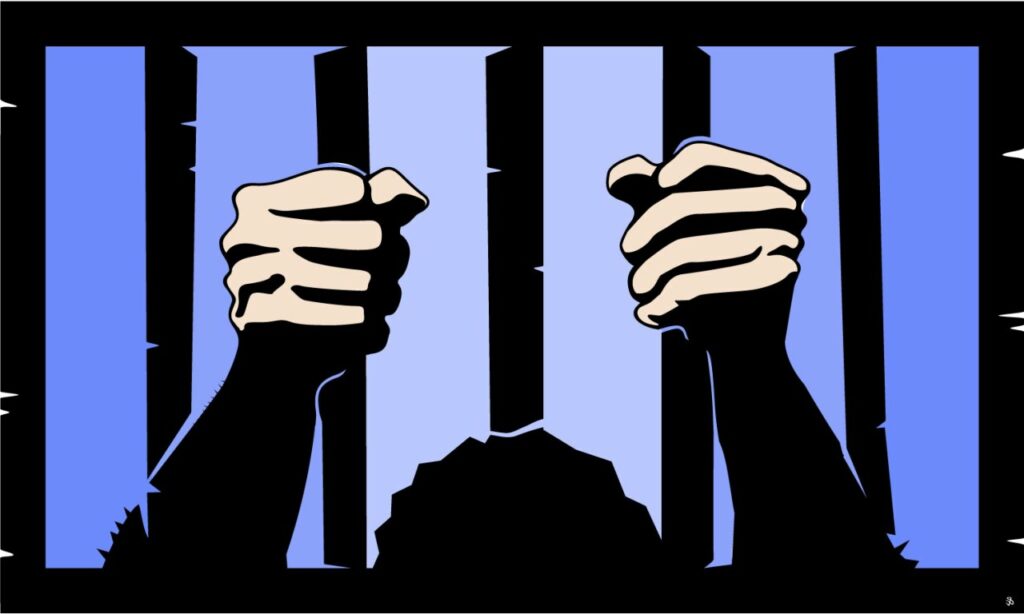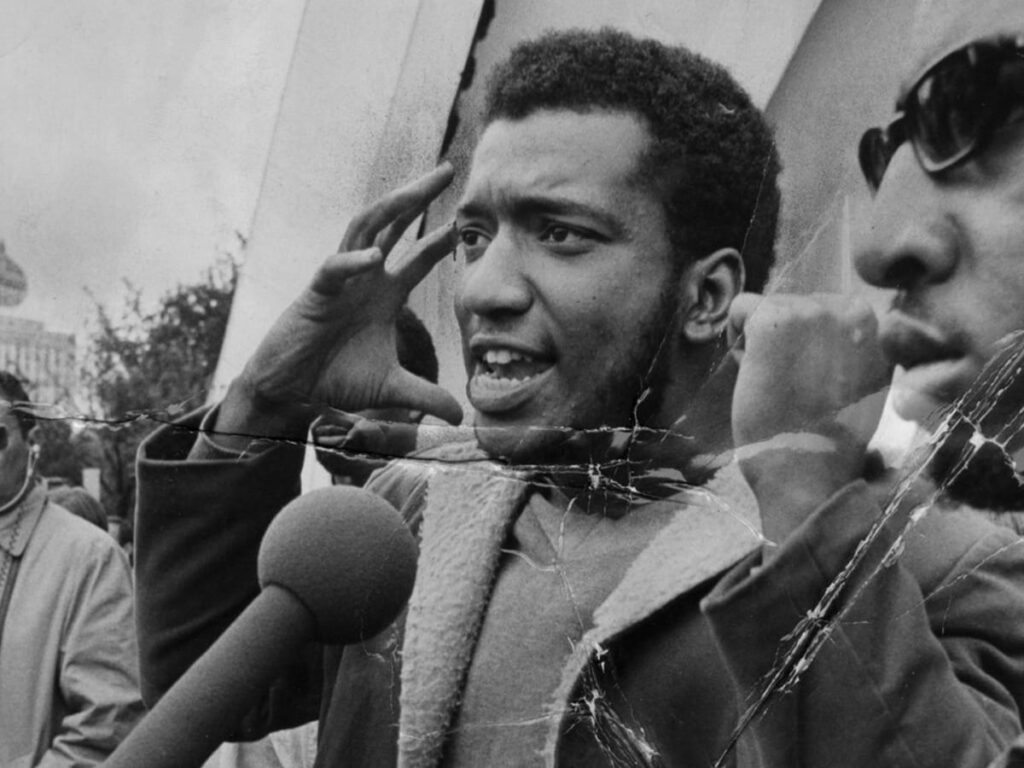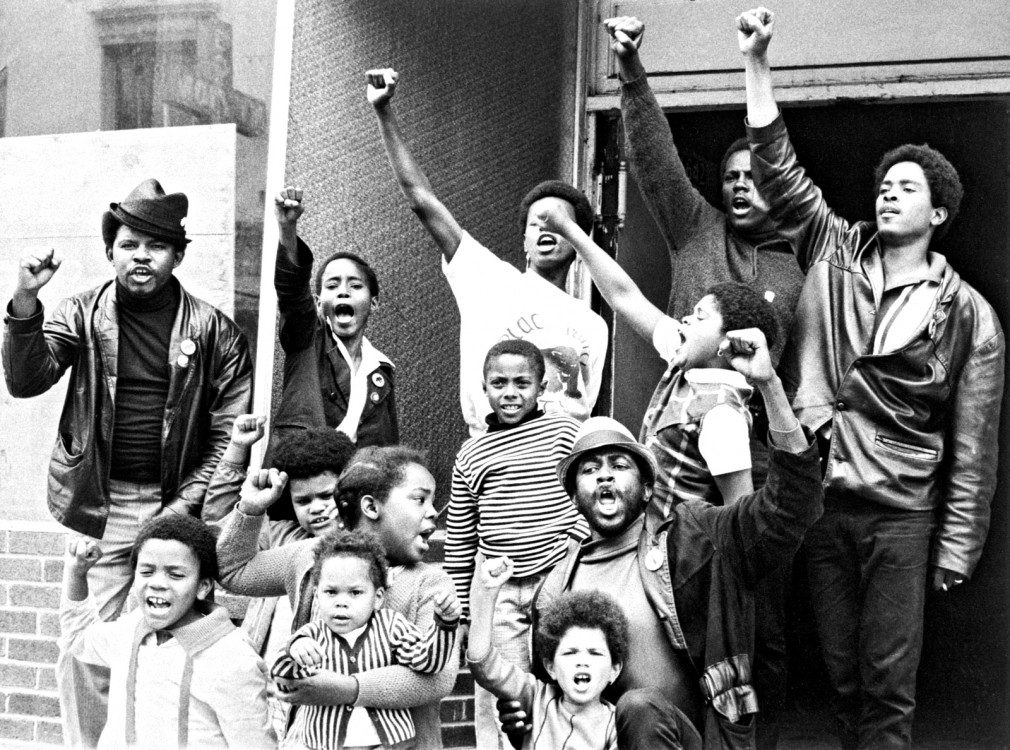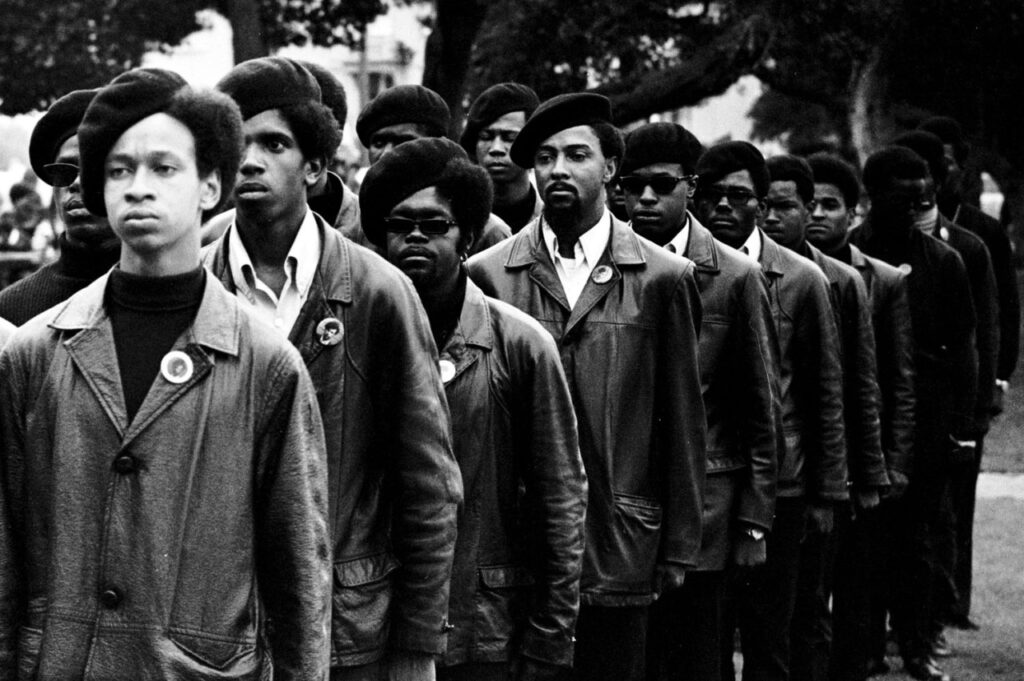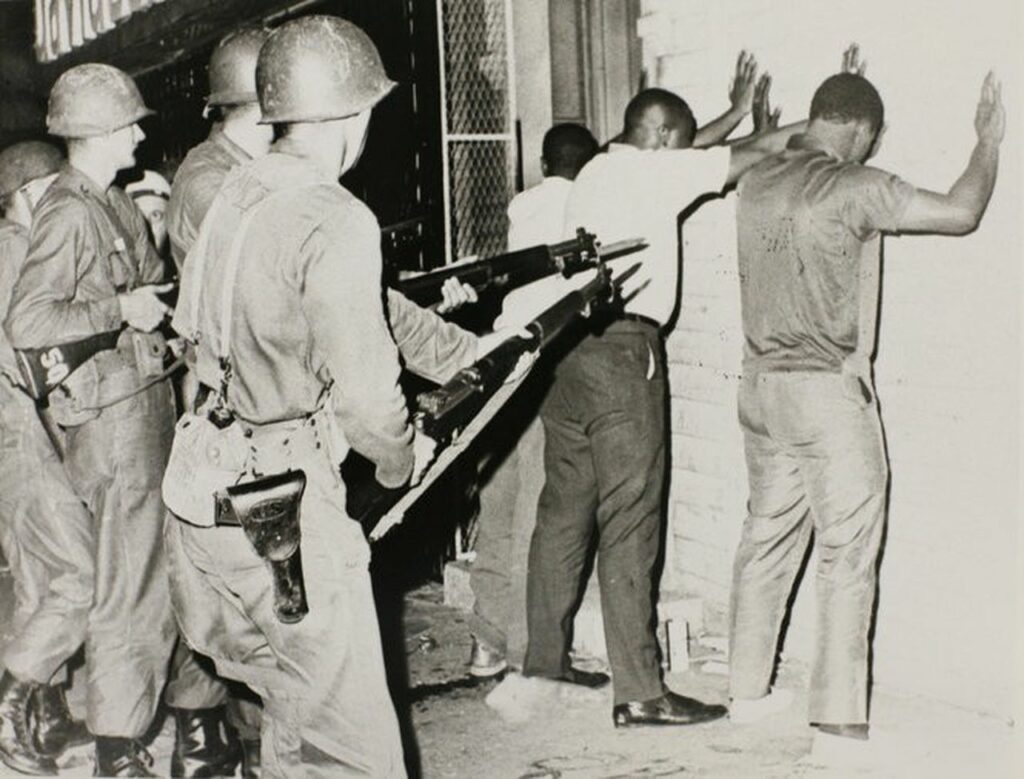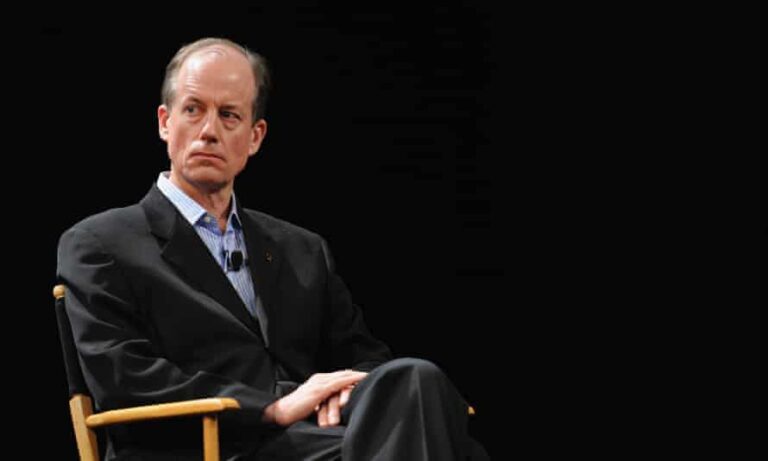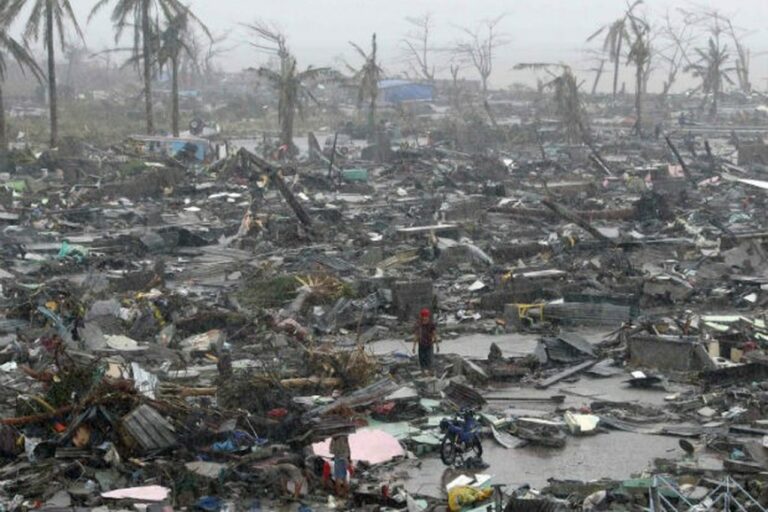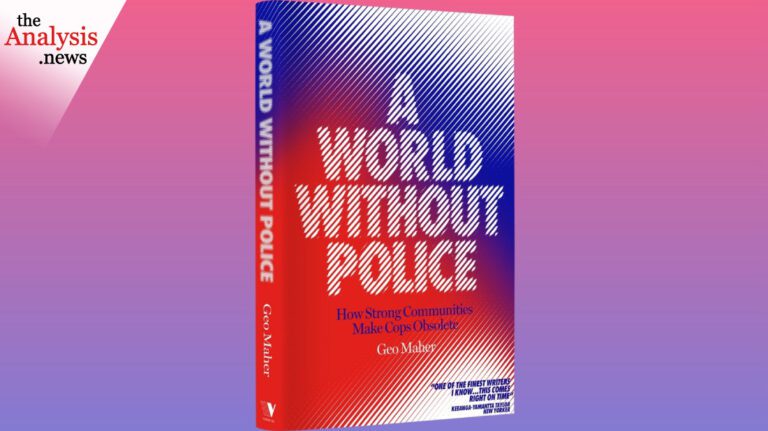Mr. Conway says police are asked by society to control the poor as if they are fighting a war, so anything goes. This is an episode of Reality Asserts Itself produced on November 26, 2014.
PAUL JAY, SENIOR EDITOR, TRNN: Welcome to The Real News Network. I’m Paul Jay. And welcome to Reality Asserts Itself.
It’s just a day after the Ferguson grand jury declined to indict the officer that shot Michael Brown. The jury process itself, as many people have commented on, was extremely secretive–it was a choice of the prosecutor to do this. But the decision-making of the grand jury is not really known. We don’t know the process they went through.
We do know from the press conference that every possible stereotype of a black man was portrayed in the delivery of the prosecutor. We’re told Michael Brown moved towards the officer. We’re not given any detail–in that press conference, at least–what that movement towards the officer was. It just evokes a black man moving towards you is threatening. If there’d been a trial, even a legitimate preliminary hearing, where this information could have come out, people at least could have had some transparency. Right now it just plays on rather evocative and essentially racist imagery.
This has nothing to do with the actual innocence or guilt of this officer. I don’t know. I haven’t seen all the evidence. I don’t know all the process and what happened that day. And isn’t that the point? We don’t really know. And an extraordinary use of the grand jury covered all of this up.
So why? Well, we’re not going to get into the detail of all this. What we really going to do is pick up on our Reality Asserts Itself series with Eddie Conway and try to talk about some of the underlying issues here.
So joining us now in the studio is Eddie Conway. He is a former Black Panther. He is the author of Marshall Law: The Life & Times of a Baltimore Black Panther. He’s now a producer at The Real News Network.
Thanks for joining us.
EDDIE CONWAY, FMR. BLACK PANTHER PARTY MEMBER, BALTIMORE CHAPTER: Okay. Thanks for having me.
JAY: I mean, one of the main themes in your book was your decision early on to defend your humanity, that the prison system, part of what it does is try to grind down your humanity, kind of turn you into an animal that will then be herded by guards. But that’s true outside of prison, too, is it not, this link of racist ideology and dehumanization, and we as a society or those who benefit from it, we dehumanize those who we want to super exploit.
CONWAY: Yes. And just to step back a minute, to look at the prison experience, what we found was that in order for the guards to have authority, they have to continue to make efforts to dehumanize every person they see in the population. And toward that end, in the prison system they took away all of our personal clothes and they put us in uniform. They took away the ability for us to put on [oils (?)] to smell nice, to be able to walk around with an individual identity. And in the mess hall in particular is one of the places where they constantly reinforce the authority of the correctional officers.
Say a guy’s 18 years old. He just finished high school. He gets hired by the state. It’s a good job. It’s job security. And he comes into the prison system, and the prison system has thousands of guys in there, some 70, some 60, some 50, but a lot of seasoned kind of people, and then he’s got to have the authority to say, go over there, do this, do that. And the way they do it is they reinforce that authority by having him challenge your humanity.
And so that same process takes place out in the community and is–it’s just strange. Last night, I rode past several young men setting on the side of the street with their handcuffs, with their hands cuffed behind her back, and a police standing over them and another police talking. And it is stuff like that that constantly reinforce the authority. And it also dehumanizes the population, because at some point you become so dehumanized, you find ways in which to make the authorities happy, like hands up, say, or I’m slowly reaching for my wallet, and other kind of indications that makes you assert yourself to help them abuse you.
JAY: This goes right back to slavery, the elimination of individual identity. If I understand it correctly, it was illegal to read, to learn how to read; it was illegal to teach a slave to read. The idea of having a conscious–being a fully conscious human, it seems to me the dehumanization is on two sides. One, you need society to dehumanize people that you want to super exploit, whether it’s slavery or something akin to slavery–certainly mass incarceration is pretty close to straightforward slavery–and then low-wage, massive low-wage section of the population, mostly black and people of color, another form of super-exploitation.
But also, in terms of the exploiter, in terms of their own head [incompr.] somehow you can rationalize this, because these are really subhuman people. So I can do this and still feel good about who I am, and I’m still going to believe in God and go to Heaven. The underpinnings of it is the society still wants a super-exploited section of the population.
CONWAY: Yes. Obviously, the people that are benefiting from that kind of arrangement, whether you’re talking about slavery or the multinational corporations today, their bottom line is profit and their secondary concern is security–they want to be secure in their particular domains, they want to have their stuff secured, so that the people that are at the bottom of the rim that’s unemployed or underemployed or that’s hungry, that live in dilapidated housing, those people always have a certain amount of frustration in them anyway. They grew up in an environment, and they grow up in an environment where they see people fighting over crumbs. And all too often, they look toward where there is money, where there’s power, and they might strike out. And even when they don’t strike out at the money or the power, they might strike out at other ethnic ethnic groups because of the association of that–the /dəˈsɪməlɪzm/ they recognize, right?
It’s then one of the tasks of the guardians of society to find out who in that particular community might represent a threat, who might organize, who might be emboldened and stand up or speak out against somebody. So there’s a constant level of across-the-board harassment to see who will respond. And then, once that person respond, that person has a resisting arrest or a failure to obey an order, that person goes into the prison system, that person is labeled. Then, from then on in, that person loses his right to vote. But also that person is identified the next time there’s an encounter. But it’s those encounters that are primarily for the community to see, okay, see what happens to the outspoken person? See what happens if you stand up? Now look at what happened to this person, and you shouldn’t stand up.
JAY: It seems to me it’s like what you’re saying in the prison. Like, the guard needs to establish the authority. Well, the authority’s based on fear. You need to fear. And part of that dehumanization is to abject fear of the authority figure. Well, it seems to me that’s what the cops are doing on the beat. Like, they’re harassing, they’re pushing, they’re prodding, it’s stop-and-frisk, it’s beatings, because you need to accept our authority even if we’re not going to charge you, if we’re not going to arrest you. You just have to be afraid of us, because society wants, through the police–and I say the elites who run it, but not only; there’s a lot of people who kind of want this outside of just the elites–they want people to internalize this fear so they don’t act out. And then, if you want your police force to be the hammer, you’ve got to back them up, which means you go to extraordinary means, like this grand jury, because you don’t want the cops second-guessing the use of force. You want them to be the hammer and not to be afraid of being the hammer, and you go to extraordinary means to protect them when they are the hammer.
CONWAY: Yes. One of the things that you see that constantly happens in the community is that the level of harassment is on a very petty level. A lot of people think, because of the violence in the community, that most people are locked up associated with violence. I think nationally that’s, like, only 10 percent of people that get arrested. The other 90 percent are actually locked up for either small amounts of marijuana or either resisting arrest or either loitering in the area. And that’s–it is nonviolent offenses that make up maybe 90 percent of the prison populations in America. And that’s directly related to harassment. And take into consideration that 13 percent of the population is black, maybe 25 percent of the population is people of color, but over to 75 percent of the people in the prison system are people of color. So it is this constant petty harassment.
But it’s also something else. It dehumanizes or desensitizes the police that’s reinforcing that, because they tend to look at the situation as if they’re in enemy territory. And so anything goes in enemy territory. We’ve seen that in Vietnam. You see that in all similar war type situations. They look at the poor communities, both white and black, as a hostile war zone, and they act accordingly, and they’re constantly trying to weed out who might be a potential problem later on, because their mandate is to protect the property and the wealth of the elite.
JAY: Yeah. I think the economic piece is the piece that never gets talked about in mainstream media. You can hear talk about racism and racist ideology and white supremacy, but it’s–and at least in mainstream media–very rarely linked to this system wants a massive pool of unemployed people because they put pressure on wages. But within the pool of unemployed people, you have a segment that are super-exploited, either unemployed or willing to take jobs at the lowest end of the pay scale. And those are mostly people of color, whether they’re African-American or Latino. It’s an enormous–I hate to put it this way, but it’s like a competitive advantage for the United States. And they use this. And this racism, the police oppression, you know, when people are living in poverty, they act out, as you said. So either you have to transform those conditions or you put the hammer to put the lid on it. And the racist ideology supports the strategy to put a lid on it.
CONWAY: Yes. And one of the things is the American population is only 5 percent of the world’s population, but you have 25 percent of the people held in prisons and in captivity in the world here in America. And so it’s always the arrangement that they have in terms of economics. Not only is the profit motive the bottom line, but the fact is that they need to keep as many unemployed people in a different environment.
One of the things that happened as they deindustrialized was they then–there was an expansion and a boom in the prison-industrial complex. Ten years before that happened, communities were like, not in my neighborhood, don’t put a prison here, don’t to this, don’t do that. But then the factories left, and all of a sudden the communities were saying, well, we’ll give you a tax incentive, we’ll do this, we’ll make sure that there’s 80 percent of capacity in the prisons, etc.
And so all of that kind of, like, works together to continue the elites’ profit-making, because now what they do is–or what they have done is they have used certain segments of the population to incarcerate, prison, and hold people in captivity, and they use other parts of the population to fill up those prisons and to fill up those cells at the same time they continue to make enormous profits.
But they’ve created something else: divide and conquer. You know, white people can’t work with black people or the urban youth is in hostile territory when he’s in Hagerstown. So then he ends up with a certain mindset. The guards in Hagerstown or Cumberland or other rural areas has a certain mindset because they’re constantly in clashes with the population that’s black. And so it distracts everybody from what’s really going on. Both groups of people are being exploited and are being super-exploited. But we can’t organize and we can’t get together and look at the common cause of our problem, because we’re right there in each other’s face.
JAY: Which is why the defense of the police by the state apparatus, by the whole media complex, by the elites, they have to defend the police and not allow, for example, civilian review of the police that would have real authority to hire and fire the chief, hire and fire cops, simply make force used beyond reasonable force illegal and charge cops and send them to jail. If you start doing that, you start undermining this coercive authority you have that enforces these social conditions. And racism kind of underlies it all, oh, because the black man’s a threat, so we’re all going to turn the other way, when we know this mass incarceration and such is taking place.
CONWAY: Yeah. And another thing that should be pointed out is that sometimes you have black officers, sometimes you have Latino officers that are just as aggressive and just as committed to suppressing people in the poor communities as the white officers are. And it’s a mindset that’s created by what I would call white supremacy. And it’s also a mindset that’s–it’s covered by institutional racism. Even black guards look into the community or black officers look into the community and see the community as a threat, because in most cases they have arrived, they have moved out in suburbia, and they see the community decay.
JAY: But even if there even is some truth to it in the sense that of course in impoverished areas there’s higher crime than in areas where people are not impoverished–. But the cops are certainly not encouraged to ask why, and they take it as a given. And I guess it’s–you know, cops need to start thinking about what the heck they’re doing here and the why of why they’re facing this kind of violence in the streets, ’cause for sure they are facing–you know, going to port areas of Baltimore, anywhere in the world, you’re going to find higher levels of violence than in areas that aren’t poor.
CONWAY: You know what the problem is? Socialization. I mean, until you can figure a way to control the education in the community–I mean, obviously the problem’s economic, but early on, young people are socialized to see society in a certain light. In my generation, we were socialized to see the military as a very good thing and a possibility of advancing for us as black people and poor people, right? So we were constantly given little military toys, soldiers. The cartoons were, like, military–G.I. Joe, etc. That’s reinforced. And then it’s reinforced in the school by what you don’t learn about yourself or what you don’t learn about America. And so you get the impression that you’re doing a good deed in the name of something that’s really good. And so then you have that mentality there. And so it’s impossible for you to look into the community and see 15 or 20 people hovering around the neighborhood and not think that they’re [dehumans (?)] or they’re diminished in some capacity or they’re not using all of their God-given resources to change their conditions.
JAY: Essentially, it’s their fault they’re living in these conditions. And so–
CONWAY: Blaming the victim.
JAY: –so now that it’s their fault, we can use the force to control them, because if they did better, they’d be out of it. It’s got nothing to do [with] the way society’s organized.
Join us for the next segment of our series of interviews on Reality Asserts Itself with Eddie Conway. As I mentioned early on, Eddie is now a producer at The Real News Network. And in the next segment of the series, I’m going to ask him why is he at The Real News Network. So please join us for that.
Never miss another story
Subscribe to theAnalysis.news – Newsletter
“Marshall “Eddie” Conway was an American black nationalist who was a leading member of the Baltimore chapter of the Black Panther Party who in 1971 was convicted of murder of a police officer a year earlier, in a trial with many irregularities.”

